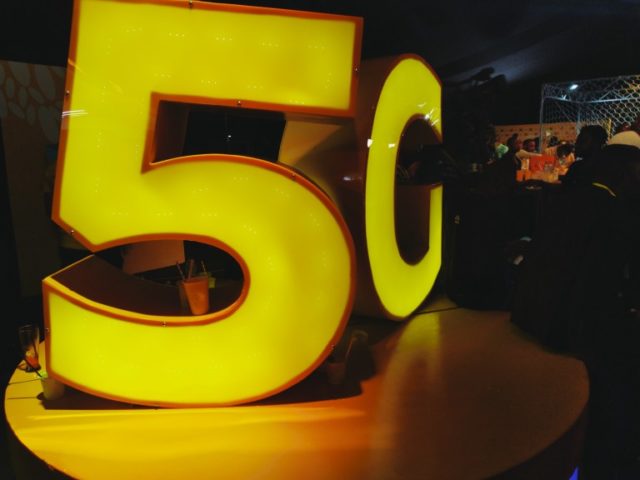Everyone should chill…
MTN tested 5G in Abuja last year November with plans to run a trial in Lagos & Calabar this year.
Reports say it’s 100x faster than 4G and I’m looking forward to using it.
The network testing in Abuja was powered by Huawei. Calabar and Lagos are powered by ZTE and Ericsson respectively.
And the former NCC chairman and the Minister of Communications and Digital Economy, Dr Isa Pantami are fully aware according to Techpoint.
Techpoint Reports:
“Speaking at the trial in Abuja, the Minister of Communications and Digital Economy, Dr Isa Pantami pointed out that the federal government is conversant with the fact that the information and communications technology (ICT) sector is one of the critical sectors of the economy.
To this effect, he revealed that the government is working on an executive order to address critical national telecoms infrastructure.
The minister acknowledged the delay in getting approval from the regulatory authority. In spite of this, he looks forward to a successful deployment of the network.
As fast as the speed of light
During a comparison test on both 4G and 5G networks, it took just 15.78 seconds to download a 2.3 GB video on the 5G network. The same file on 4G took exactly 5 minutes, 3.84 seconds.
While download speed on the 5G network was about 1 Gbps, it can apparently go as high as 4.1 Gbps. According to Dolapo Adeniji-Adele, RF Technical Specialist at MTN, factors like server load, as well as the device contribute to the download speed.
On the other hand, the download speed on the 4G network was just about 68.2 Mbps, which is a little fraction compared to that of 5G. Worthy of note is that the 4G network is on the 2600 MHz band and 5G on 26 GHz.
Unlike fibre optic that requires laying cables, 5G infrastructure basically works on cloud-based architecture.
For the trial, MTN secured a 100 MHz spectrum in Calabar and 20 MHz in Abuja. As, expected this resulted in a significant difference between the Internet speed tests in Abuja and Calabar.”
Use cases for 5G
“5G offers tremendous benefits in terms of speed, latency (less delays), efficiency and security. This pilot offers a unique opportunity for us to explore use-cases and applications in Nigeria, and we are excited about its potential for our country and our company” noted Mohammed Rufai, Chief Technical officer, MTN Nigeria.
In a live demo to showcase the relatively low latency of the 5G network, an artificial intelligence goalkeeper responded faster to a penalty kick on 5G than when on a 4G network.
All the goalkeeper relied on was communication, from a sensor, on the trajectory of the ball. Because of the comparatively lower latency on 5G, the goalkeeper was able to react quickly.
This projects a promising future for sectors like tele-medicine, where a surgeon can remotely operate on a patient using robotic hands.
In another live demo, MTN Nigeria’s Chief Transformation Officer, Bayo Adekanmbi chatted live with the Minister and his delegates through a hologram, demonstrating the use case of fast Internet speed for remote meetings or live performances by artistes.
Regardless of the successful 5G trial, MTN is not abandoning older generation cellular networks any time soon. According to a top executive, they will continue to roll-out 3G and 4G networks across the country for the next few years.
The 5G demo centres in Abuja, Calabar and Lagos will continue to run for 3 months, utilising the trial spectrum allocated to MTN by the NCC. During the course of the 3 months, it will also extend to four other cities.



 ADVERTISE WITH US. Send a Whatsapp message 08070950313
ADVERTISE WITH US. Send a Whatsapp message 08070950313
 ADVERTISE WITH US. Call or send a Whatsapp message 08070950313
ADVERTISE WITH US. Call or send a Whatsapp message 08070950313





